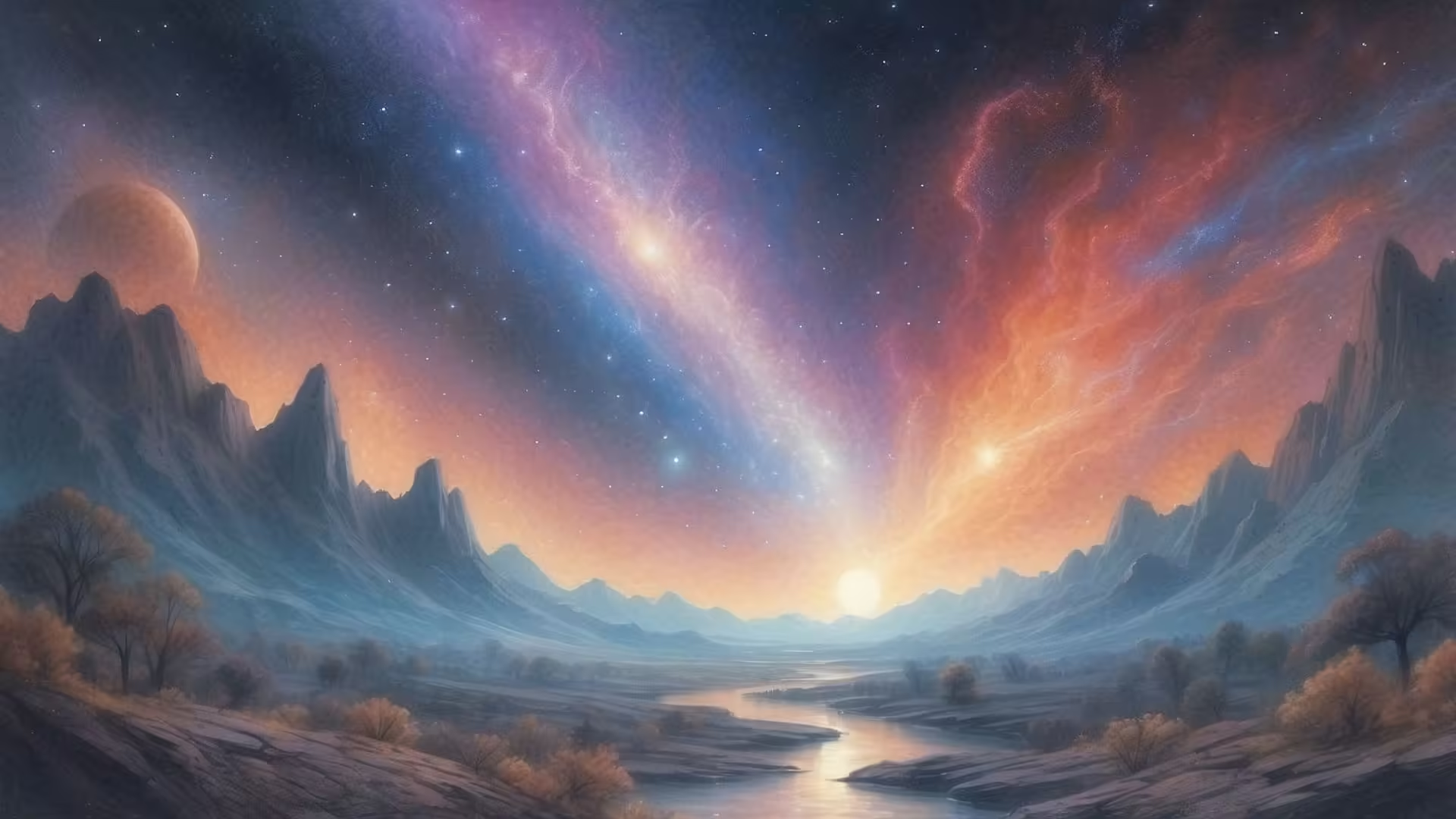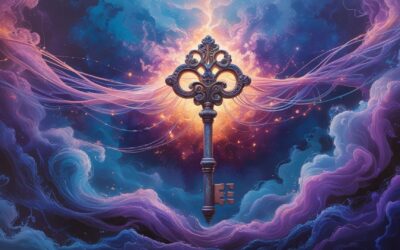The concept of God or a higher power is one of the oldest and most profound ideas in human history. For some, belief in a higher power provides comfort, direction, and purpose. Others may feel uncertain or prefer to find meaning in life without relying on spiritual frameworks. Whether you see God as a personal deity, an energy that connects everything, or a concept that offers moral guidance, the idea of something greater than ourselves sparks endless reflection. In this article, we’ll explore different perspectives on belief, how these views shape our lives, and what it means to connect with—or question—the idea of a higher power.
The Many Ways People Perceive God
There is no single way to define God or a higher power. For many, especially those who follow organized religions like Christianity, Islam, or Judaism, God is a personal being—omniscient, omnipotent, and deeply involved in the world. Believers often turn to sacred texts, rituals, and prayers to connect with the divine and seek guidance in their daily lives. In this context, God offers not only comfort but also a moral framework for how to live.
In other traditions, God is not so much a person as a force. In Hinduism, for example, divinity can take many forms—gods and goddesses representing different aspects of life and the universe. Meanwhile, Buddhism focuses less on a specific god and more on inner spiritual growth, with the idea that enlightenment is found within oneself. Many people who align with these perspectives see the divine as an energy or balance that governs the universe.
There are also those who prefer a more philosophical approach, viewing God as a symbol of ideals like love, justice, or truth. For them, believing in a higher power isn’t about rituals or doctrines but about living in alignment with certain values. And then there are the skeptics—those who question or reject the idea of a higher power altogether. They might identify as atheists or agnostics, choosing to find meaning through personal relationships, nature, or the pursuit of knowledge.
How Belief Shapes Daily Life
Whether you believe in God or not, your view of the world is shaped by how you approach the idea of a higher power. For believers, prayer and meditation often become part of daily life, offering a way to find peace and clarity in moments of uncertainty. The belief that someone—or something—greater is watching over them can provide comfort during difficult times, making challenges feel more manageable.
For those who see God in less traditional ways, nature might become a place of worship, or moments of connection with others might feel sacred. People who believe in the universe’s energy or karmic balance often talk about things like “positive vibes” or “manifesting” their desires. Even without a structured belief system, many find solace in the idea that life unfolds according to a higher plan, whether we understand it or not.
On the flip side, those who don’t believe in a higher power might focus more on human responsibility. Without a divine being to guide them, the emphasis shifts to personal accountability and ethical behavior. Instead of relying on fate or divine intervention, they find meaning in relationships, creativity, or social impact. Their view might be that meaning is something we create, not something we’re given.
The Role of Doubt and Exploration
Even for believers, doubt is a natural part of the journey. Many people experience moments where they question their faith—whether it’s because of personal challenges or exposure to new ideas. This doubt isn’t necessarily a bad thing; in fact, it often leads to deeper understanding and stronger belief. Exploring different viewpoints can broaden one’s perspective, making room for both faith and uncertainty to coexist.
Some people might move between belief systems throughout their lives, finding new ways to connect with spirituality or letting go of old ideas that no longer serve them. It’s a reminder that belief isn’t a fixed destination but an ongoing process, one that can evolve over time.
Finding Common Ground
No matter what someone believes, there’s often more overlap than we realize. Whether through prayer, meditation, or reflection, people across cultures seek moments of stillness and connection. Kindness, compassion, and the desire to make the world a better place are values shared by believers and non-believers alike. In many ways, the conversation about God and spirituality is less about who is right and more about how we make sense of life’s big questions: Why are we here? What happens after we’re gone? How do we live meaningful lives?
Belief in a higher power—or the choice not to believe—is a deeply personal matter. Whether you find comfort in the idea of God, feel a spiritual connection to the universe, or place your faith in humanity, what matters is the journey of understanding. Each perspective adds a layer to the collective human experience, reminding us that there’s no one right way to search for meaning. At the end of the day, belief—whatever form it takes—is about finding peace with the unknown and living authentically in the present.
Let’s Talk
So, how do you perceive the idea of a higher power? It’s such a fascinating question, isn’t it? It’s one of those things that gets right to the heart of how we see the world, and yet, no two people will answer it the same way. What’s interesting is that even if you say you don’t believe in a higher power, there’s usually something—whether it’s love, nature, or even the energy between people—that still feels bigger than you. Have you noticed that? It’s like, whether we want to call it “God” or not, we all seem to sense that there’s something out there, something that makes life feel more meaningful.
The thing about belief is that it’s not static. Some people are born into a particular faith and stick with it their whole lives, while others go on a bit of a spiritual journey, picking up pieces from different places along the way. And honestly, both paths are valid. It’s kind of like hiking—some people take the direct route, and others wander through every side trail they can find, but everyone’s trying to get somewhere meaningful, right? The real question is, how do we deal with those moments when the path feels unclear? Have you ever experienced that—like everything you thought you believed suddenly doesn’t make as much sense? What did you do when that happened?
I’ve always found it fascinating how personal belief shapes how we deal with challenges. For some people, faith is like a life jacket—it keeps them afloat when the waters get rough. Others turn to things like meditation or gratitude practices, and some just lean on their friends and family for support. And there’s no “right” way to do it. Life throws us curveballs, and we all find different ways to catch them. But the cool thing is that, whether through faith or connection, what we’re really doing is finding ways to hold onto hope. That’s kind of beautiful, don’t you think?
What I’ve noticed, too, is that even people who say they’re not spiritual often end up engaging in practices that look a lot like spirituality. Ever met someone who doesn’t believe in God but talks about “the universe” having a plan? Or someone who doesn’t pray but swears by setting intentions and journaling? It’s almost like we can’t help but search for patterns and meaning, even if we’re not consciously looking for a higher power. Maybe that’s part of being human—always trying to connect the dots, even if we don’t know what picture we’re drawing.
And then there’s the role of doubt. I think doubt is one of the most misunderstood parts of belief. It’s often seen as a weakness, but I think it’s actually essential. Without doubt, how do we grow? How do we challenge ourselves to think deeper, question what matters, and stay open to new perspectives? I mean, faith without doubt would be kind of like a movie with no plot twists—predictable and, honestly, a little boring. Have you ever doubted something you believed in for a long time? How did you navigate that, and did it change your perspective in any way?
At the end of the day, I think belief—whether in God, the universe, or just the people around us—is about finding something to hold onto. It’s about creating meaning in a world that doesn’t always make sense. And maybe that’s why the question of a higher power is so intriguing. It’s not really about having all the answers; it’s about being okay with the fact that some questions don’t have clear answers at all. And isn’t that what makes the whole journey worth it—the curiosity, the wonder, the occasional confusion, and those rare moments of clarity when everything just clicks?
So, where do you stand on all of this? Do you believe in a higher power, or are you more drawn to finding meaning in the everyday moments? And how has your belief—or lack of belief—shaped the way you live your life? Because, in the end, what we believe isn’t just about theology or philosophy—it’s about how we choose to show up in the world. And that, I think, is where the real magic happens.
Let’s Learn Vocabulary in Context
Let’s explore some of the words and phrases that naturally came up during our conversation about belief, spirituality, and meaning. First, we have “higher power.” A higher power refers to something greater than ourselves—whether it’s God, the universe, or some kind of spiritual force. Even outside religious contexts, people talk about a higher power when they feel connected to something bigger, like nature or the collective energy of humanity.
Next is “faith.” Faith is about trusting something even when you can’t see it or prove it. It’s not just about religion. We use faith in everyday moments, like when we trust that a situation will work out even if it feels uncertain. Think about telling someone, “I have faith in you”—it’s that belief in things we can’t control or fully understand.
“Doubt” plays a crucial role in this discussion. Doubt means questioning something you’ve believed or held onto for a long time. It’s not necessarily negative; it can push us to think deeper. Ever had a moment when you doubted your choices or beliefs, only to come out on the other side with more clarity? That’s the kind of growth doubt can lead to.
Let’s move to “connection.” Connection is the feeling of being linked to others, to nature, or even to a spiritual force. You don’t have to be religious to feel connected—think of the way you feel when you share a deep conversation with someone or stand in awe of a beautiful sunset. Connection reminds us that we’re not as separate as we sometimes think.
“Spirituality” is another key word. It’s the sense of something beyond the physical world, but it doesn’t have to be tied to organized religion. People often describe spirituality as finding meaning in the little things—like mindfulness, gratitude, or even music. It’s personal, different for everyone, and often shows up when we least expect it.
“Meaning” is something we all search for. It’s about finding purpose in what we do and in the experiences we go through. Some people find meaning through religion, while others discover it in relationships, work, or personal achievements. Have you ever asked yourself, “What does this moment mean to me?” That’s the search for meaning in action.
Now, let’s look at “belief.” Belief is what you hold to be true, whether it’s about the existence of a higher power, how the universe works, or how people should treat each other. It’s not just about theology—it’s in the little things too, like believing in second chances or the power of kindness.
“Exploration” fits perfectly into this conversation. Exploration means being curious and open to new ideas or experiences. When it comes to belief, exploration isn’t about having all the answers—it’s about being willing to ask questions and try new things. Life itself is an exploration, isn’t it?
“Accountability” is another word worth mentioning. In the context of belief, accountability refers to taking responsibility for your actions, whether or not you believe in divine judgment. It’s about living with integrity, even when no one is watching. Think about how we hold ourselves accountable to our values and promises—it’s a guiding force for how we interact with the world.
Finally, let’s talk about “peace.” Peace isn’t just the absence of conflict; it’s that inner calm we feel when things align—whether through faith, meditation, or simply a quiet moment with ourselves. Finding peace is a universal goal, one that connects people across beliefs and cultures.
Here are a couple of questions to reflect on: When was the last time you felt connected to something bigger than yourself? And how do you find meaning or peace when life feels uncertain?










0 Comments